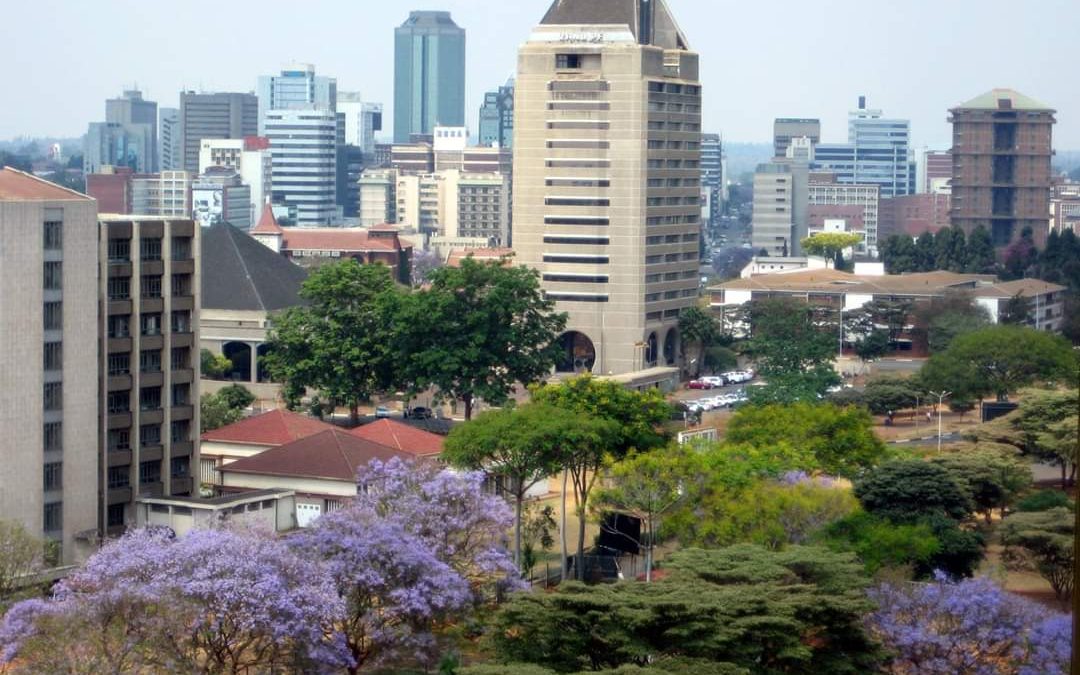–Zimbabwe Standard
Harnessing Zimbabwe’s abundant renewable energy resources is key to helping the country support its development strategies and leapfrog towards low-carbon socio-economic progress.
Energy is increasingly being recognised as a prerequisite for human development: it’s surprising that it took the world so long a time to acknowledge this reality. Fortunately, it is now enshrined in the Sustainable Development Goals (SDGs). Specifically SDG number 7 acknowledges that ensuring access to affordable, reliable, sustainable and modern energy for all is fundamental to achieving all the other SDG goals.
For many people in Zimbabwe, particularly in the rural areas, access to energy remains a pipe dream. According to Unicef, access to electricity is low with 40% of the population being connected. There are huge disparities between rural and urban areas with 83% of urban households being connected to electricity compared to 13% in rural areas. Rural communities get 94% of their energy requirements from traditional fuels, mainly fuel wood.
Without access to energy, rural communities cannot grow economically, opportunities are limited, and health services severely curtailed. Women often bear the brunt of meeting household energy needs and are forced to walk long distances in search of firewood denying them an opportunity to live to the best of their potential.
Having no electricity or clean, efficient ways to cook brings especially tough challenges for women, including particular risks to their health. More people die prematurely from illnesses caused directly by smoke from open fires or inefficient stoves burning traditional solid fuels than from HIV and Aids, tuberculosis and malaria combined. The majority are women and children, who spend the most time around the household hearth.
It is a welcome development that the government of Zimbabwe has been developing a number of policy frameworks to enhance energy investment and access and these include the Renewable Energy Policy, Rural Energy Master Plan, Renewable Energy Readiness Assessment among others. But much more needs to be done.
For Zimbabwe to meet its energy needs — and in a way that is sustainable — huge levels of finance are required to boost its decentralised energy sector. Decentralised technologies which are smaller, faster, and require different financing models to the traditional grid need to be prioritised if we are to increase access to energy for citizens over the next decade.
Renewable-powered off-grid systems can help increase rural communities’ access to affordable energy supplies. To enable this requires a radical shift in policymaking, thinking and action.
Providing sustainable energy for everyone in the truest sense requires an investment in off-grid integrated renewable energy systems. Renewables are the only convincing and affordable solution to provide underserved communities that are far from existing grids with access to modern energy services.
A rapid transition to 100% renewable electricity generation is both technically possible and socioeconomically beneficial. To support this transition, we need to scale up prototypes that have proved successful both at local level and in other countries across the globe. There is also a need to improve knowledge and communication especially simplifying the language around renewables which has traditionally couched in scientific terms.
Rather than simply by counting numbers of connections and megawatts generated, we need to focus on how decentralised energy systems can impact lives and livelihoods.
Related posts
Global | Didi Angaye Earns A Distinction Award, Another Feather To The Cap
On a bright sunny day, in the month of July, 2024, the prestigious Staffordshire University located in the West Midlands of England organised its Award giving and Graduation ceremony to honour graduates of various educational programmes and courses which it offers. Didi Timipah Angaye,…
Olu Of Warri Bags Award In UK, Wife Advocates Return To Cultural Values
The Olu of Warri, Ogiame Atuwatse III, has received the Leadership and Community Development award at the 14th African Achievers Awards (AAA), which took place at the Parliament House, United Kingdom. The award was presented by a member of the House of Lords, London, Rt…
Brit Awards | Asake, Burna Boy And Other ‘New Cats’ Get Nominations
Nigerian singers Burna Boy, Asake, and Rema have been nominated for the 2024 Brit Awards. The nomination list for the annual music awards show was released on Wednesday 25, January 2024. Burna Boy and Asake made the ‘Best International Artiste’ category, while ‘Calm…
Brit Awards 2024 | The Full List Of Artist(e)s
This year’s Brits nominees have been revealed ahead of the ceremony in London in March. Dua Lipa is the first star confirmed to perform at the event – but how many awards is she up for? Musicians including Raye, Central Cee, J Hus and Blur are also…
Despite Increased Transfer Volume And Institutional Adoption, Bitcoin Stays Below $60K
Bitcoin’s price hovers around $59K as increased transfer volume indicates a stable demand among investors. CryptoQuant data indicates buyers are absorbing the panic selling pressure around the $57K price level. Bitwise’s latest report suggests that institutional investors are still buying Bitcoin despite the recent price…
Traders Focus On Meme Coins As Bitcoin, Ethereum And XRP Erase Recent Gains
Bitcoin, Ethereum and XRP dip under key support levels at $60,000, $2,600 and $0.60 respectively. Tron ecosystem’s meme launchpad SunPump generates over $1.1 million in revenue within twelve days of its launch. Tron network daily revenue reached a record high of $26.83 million on Tuesday,…
Top 10 Cryptocurrencies To Invest in January 2024
-Michael Adams From Bitcoin and Ethereum to Dogecoin and Tether, there are thousands of different cryptocurrencies, making it overwhelming when you’re first getting started in the world of crypto. To help you get your bearings, these are the top 10 cryptocurrencies based on their market…
The Risk And Reward Of ChatGPT In Cybersecurity
Juan is an experienced CTO with a demonstrated history of working in the computer and network security industry. He is an information technology professional skilled in SAP and Oracle applications, computer forensics, vulnerabilities research, IPS/IDS and information security. Unless you’ve been on a retreat in…











